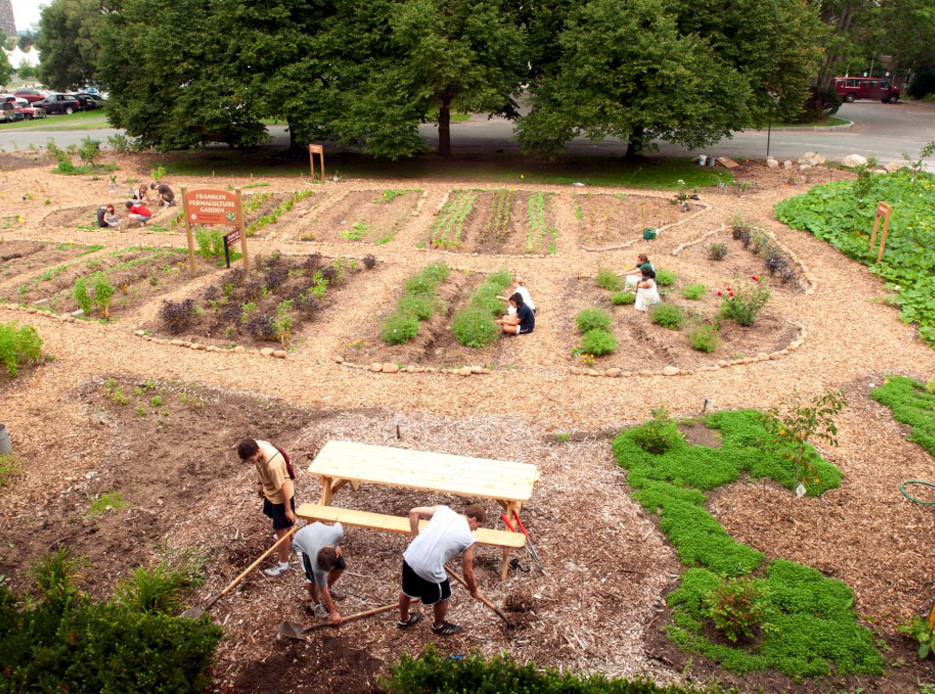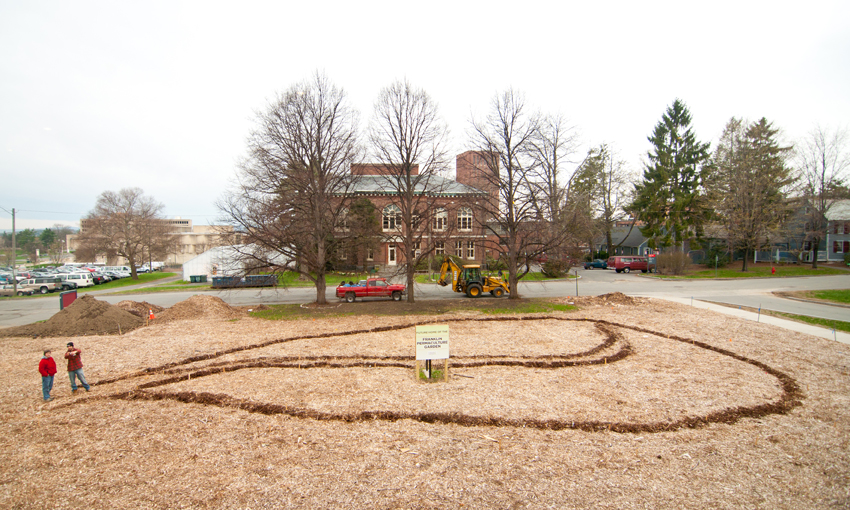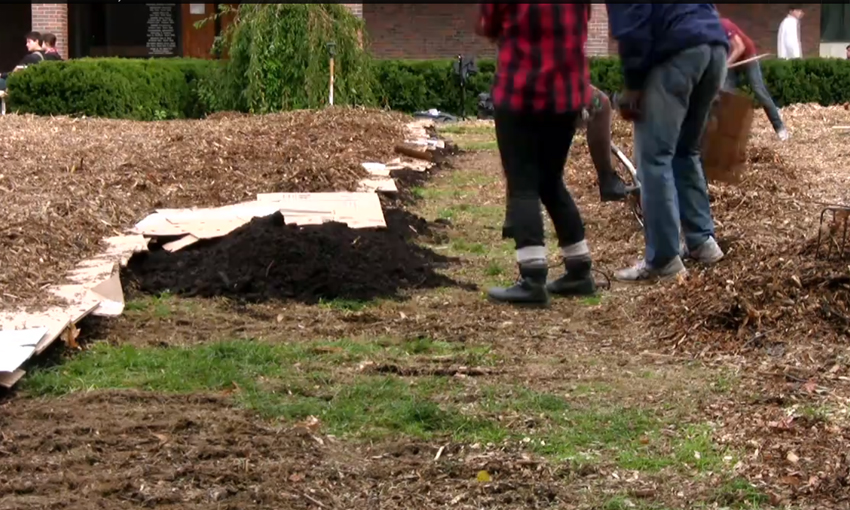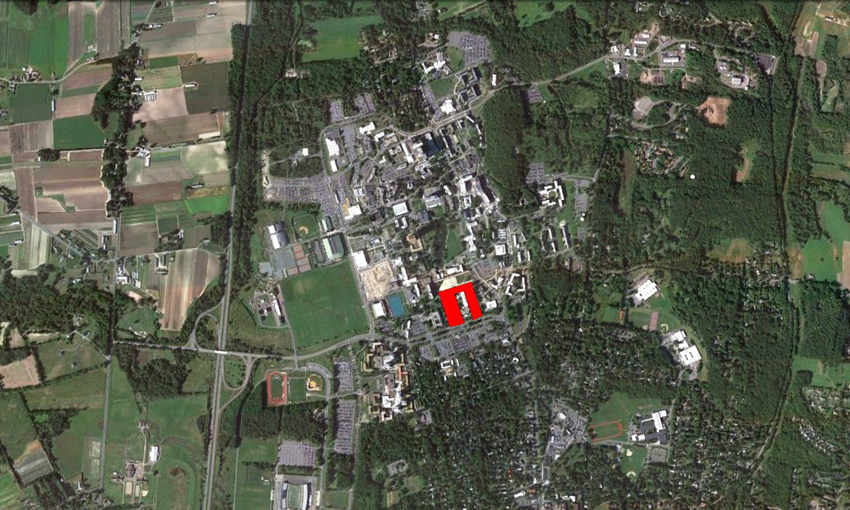The UMass Permaculture Initiative is a unique sustainability program that converts unproductive grass lawns on campus into ecological, socially responsible, and financially sustainable permaculture landscapes that are easy to replicate. The permaculture garden provides food for the campus dining facilities as well as a portal into learning for the students.
The UMass Permaculture garden follows three basic installation phases:
1) Sheet mulch phase: An ecological, socially engaging, and low-cost gardening method – involves layering (not tilling) organic matter into a pre-existing base such as a grass lawn. The end product is healthy, productive soil from which high quality foods grow.
2) Design phase: Work with stakeholders to design landscapes which accommodate as many needs as possible while growing good food and maintaining ecosystem health. A design charrette (workshop) encouraged the collaboration between students, faculty, staff, administration, and local community members for the creation of the first on-campus permaculture garden at Franklin Dining Commons. The garden is designed to provide the maximum infiltration and capture of rainwater.
3) Planting phase: The diversity in a permaculture landscape is extremely important ecologically, as different plants attract pollinators, provide habitat and food to many small animals, and add important minerals to the soil each year that regenerate ecosystem health.
Designer: Ryan Harb. Consultant: Jono Neiger of Regenerative Design Group. Community members produced the final design and planting layout.
SOURCE: http://www.umasspermaculture.com/
READ MORE: http://green.blogs.nytimes.com/2012/06/05/farming-on-the-campus-quad/
EDITOR’S NOTE: The Franklin permaculture garden is the first example of edible permaculture in a university located in the United States. Over 100 individuals, including students, university staff and members of the community were brought together to help design and construct the garden which, in itself, now plays a critical role in permaculture training and education.
STRENGTHS & OPPORTUNITIES: The project’s strengths include the social and academic synergies constructed on the campus. The construction and maintenance of a permaculture garden can bring together a wide diversity of individuals while also providing a source of education. Permaculture zones should be planned and integrated into their context as they can extend and strengthen pre-existing environmental systems.
WEAKNESSES & THREATS: Short-term productivity does not play a role in this type of project and subsequently, a long-term management plan (up to 30 years) is necessary for this landscape typology to mature. Consequently, a long-term, on-site steward or manager is critical for the full implementation of the project. Other difficulties include aesthetic preconceptions that might dismiss such a landscape as being unkempt, messy and inappropriate for public space. These concerns suggest that project siting become and important factor and one criteria be that the site is, in fact, in need of ecological amelioration and/or social attention









